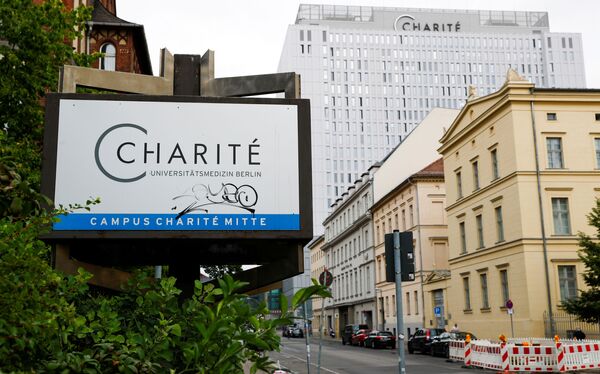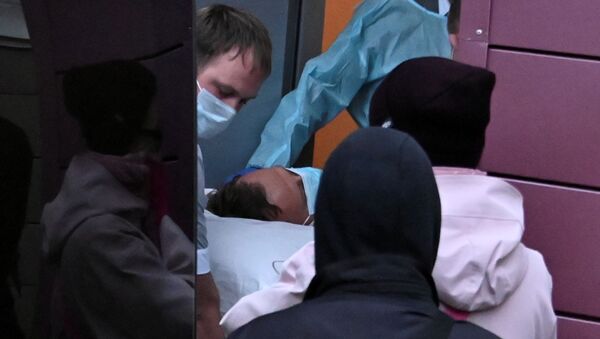The diagnosis of Russian opposition figure Navalny's condition by the German Charite clinic does not indicate that he was definitely poisoned, Russian presidential spokesman Dmitry Peskov said.
He also commented on speculation of the Kremlin's complicity in Navalny's alleged poisoning:
"We cannot treat the accusations you mentioned seriously. These accusations have absolutely nothing to do with truth and are more like empty noise," Peskov told reporters.
The spokesman added that the Kremlin does not understand why German doctors reached their conclusions so quickly.
"We do not understand why our German colleagues are in such a hurry to use the word 'poisoning' and so on. This version was among the first to be considered by our doctors, but, I repeat, the exact substance has not been determined," Peskov said.
Doctors at Berlin's Charite clinic said on Monday that they found traces of a substance from the group of cholinesterase inhibitors in Navalny's blood but the tests to determine the exact substance were ongoing.
Peskov noted that the analyses of Russian and German doctors were similar, but they drew different conclusions. Russian doctors detected low cholinesterase in the first hours after Navalny was hospitalized and immediately began using atropine, which is now being administered by the doctors in Berlin as well.
"If German doctors have grounds to use this version as the main one, some information will probably be presented [to substantiate]," Peskov said.
The Kremlin sees no reason to launch an investigation into Navalny's alleged poisoning, the spokesman said, adding that a probe could be launched only if the poisoning is confirmed.
"The substance must be found first, to understand what caused this condition. There must be grounds for investigation. For now, we are seeing a comatose patient," Peskov said.
The most important thing right now is to help Navalny get well, he added.

The European Union Calls for Investigation
High Representative of the EU for Foreign Affairs Josep Borrell commented on Navalny's case on Tuesday, urging Moscow to launch a probe into the opposition figure's illness.
"The preliminary test results from the Charite – Universitatsmedizin hospital in Berlin indicate that the Russian opposition leader Alexei Navalny was poisoned during his stay in Siberia. … It is imperative that the Russian authorities initiate an independent and transparent investigation on the poisoning of Mr Navalny without delay," Borrell said.
What Happened to Navalny?
Russian opposition politician Navalny suffered an acute health condition and went into a coma during a flight from Tomsk in Siberia to Moscow last Thursday. After an emergency landing in Omsk, he was hospitalised with suspected poisoning as one of the possible reasons behind his condition. Later, Russian medics found no traces of poison in his samples and suggested that his condition was caused by an abrupt drop in blood sugar levels linked to a metabolic imbalance.
On Saturday, he was flown to Berlin for further treatment. According to a statement by the lead doctor of the Omsk hospital, Aleksandr Murakhovsky, German doctors said in a letter that Navalny's condition remained stable but serious and thanked their Russian colleagues for saving his life.




